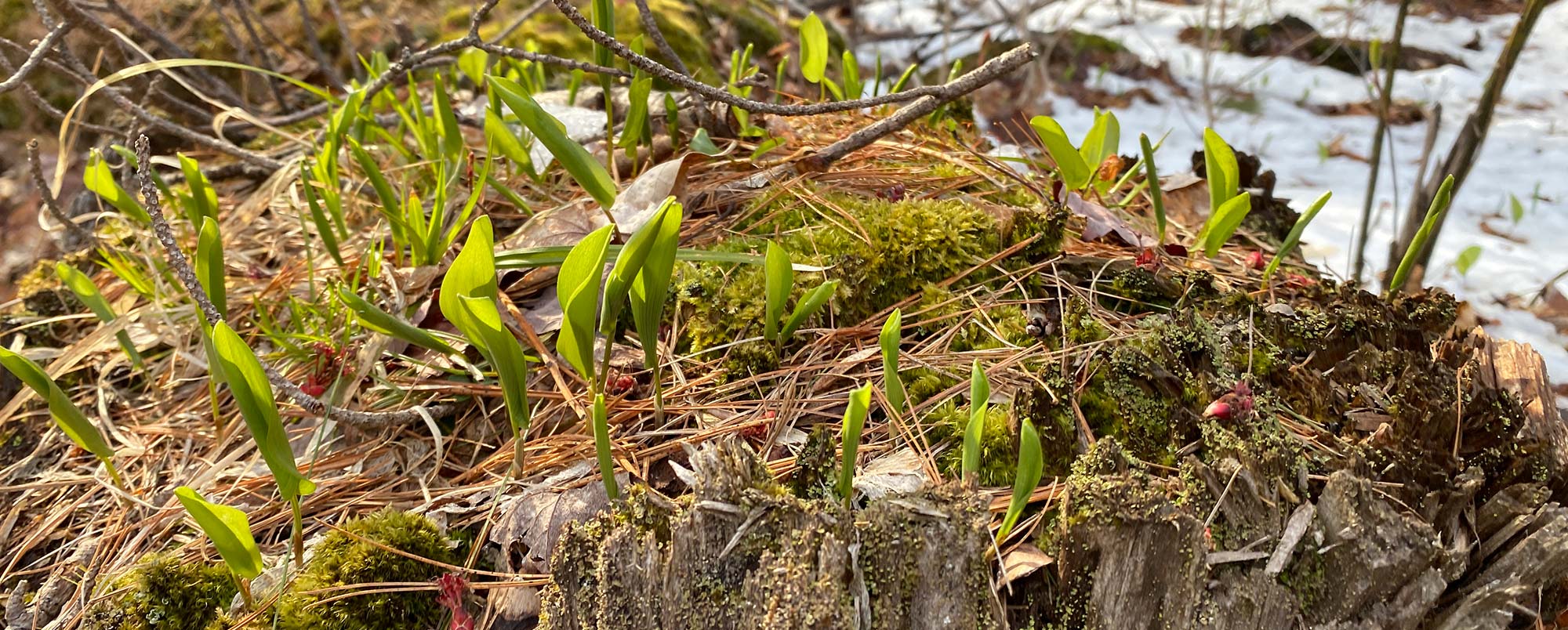I went to a tick talk last night in southwestern Vermont that was sponsored by Bennington College and the Bennington County Sustainable Forestry Consortium. Kathleen LoGiudice, a researcher affiliated with Union College, gave the talk, which was focused on tick ecology and Lyme disease. I’d been picking fiddleheads right before the talk, and several times during the presentation I noticed black-legged ticks crawling on my pants. Just 10 years ago there weren’t any ticks – or weren’t any to speak of – in the area where these fiddleheads grew, which was one of the points LoGiudice was making.
Most of the people in the room – and probably most of the people reading this blog – understood/understand the basics of the tick life cycle and Lyme disease. If not, here’s an extensive story we published about it in 2008.
Listening to LoGiudice’s presentation and the attendees’ questions made me marvel at how far we’ve come in the last decade in our collective knowledge about ticks and Lyme. When I wrote that story in 2008, the disease felt new and scary, whereas the vibe at last night’s talk had a battle-hardened quality. But the presentation also reaffirmed how complicated the tick life cycle, and the disease, and the public health system are, which was a little depressing, too. While ticks have spread through our region at an almost unbelievable rate, and outbreaks of Lyme disease have become common occurrences in our communities, we’re still no closer to a commercial vaccine, or even a decent Lyme test.
Here are some things I found particularly interesting in LoGiudice’s talk:
Lyme disease is just one of four maladies that black-legged ticks can pass to people. You’ve probably heard of babesiosis and human granulocytic anaplasmosis (HGA), two of the other ones, but there’s this relatively new thing called “deer tick virus” that is generating some buzz these days. It’s still very rare, but pretty scary sounding. Most frightening is the transmission time – rumor has it that a tick may be able to pass it to you after feeding for only minutes, as opposed to days with Lyme disease.
A group of scientists did a study where they found Lyme rates rising in areas where red fox populations were declining. Many naturalists – myself included – have noticed that coyotes seem to be displacing red foxes in parts of the Northeast. This study shows that when coyote populations rise, Lyme rates rise.
There’s a lot of talk about climate change being linked to a rise in Lyme disease rates, and I loved that LoGiudice was as skeptical as I am about the way people rush to lump bad things together – it made me trust her as a scientist. It’s an open question as to what effect a warming planet is going to have on all this, but at the very least, warmer weather means earlier tick emergence, which means an exponential increase in risk to humans. There’s data related to this in two recent papers published by the Cary Institute.


Discussion *